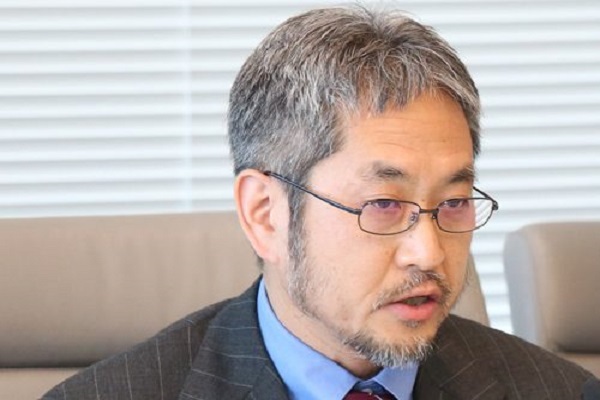Biden’s ME Trip Agenda Proves Continuation of Trump’s Policies, Expert Says

US President Joe Biden will start his trip to the Middle East on Wednesday (July 13) and will first visit the occupied territories and then Saudi Arabia.
Some experts believe that in addition to the issue of the oil market and the need to increase production by countries such as Saudi Arabia, issues such as the normalization of relations between Riyadh and Tel Aviv and the JCPOA will be on the agenda of the US president and his accompanying team during their trip to the Middle East.
Speaking to IQNA, Yasuyuki Matsunaga, a Tokyo University of Foreign Studies professor said that in addition to the energy issue, the formation of a paramilitary alliance against Iran is one of the goals of Biden's trip.
Following is the full text of the interview:
IQNA: What do you think is the main purpose of Joe Biden's trip to the West Asian region?
Matsunaga: It appears that President Biden may have two immediate goals. One is to show to the American electorate in general and key segments of the U.S. defense and foreign policy circles, especially pro-Israel and pro-Arab-engagement circles--some of which are key Democratic Party supporters traditionally--that he is engaged with the Middle East, at least at the minimal level. This goal seems to serve his short-term domestic political interests, that is, his domestic political interests in the year of U.S. midterm elections.
The second objective seems to be to show publicly—that is, domestically and internationally—that he has endorsed part of the Tramp-era policy innovations in the Middle East, including certain on-the-ground developments in the wake of the “2020 Abraham Accords” in the areas of security and economic cooperation between Israel and some of the [Persian] Gulf Arab states.
Instead of trying to reverse and reorient the major shift in the long-standing U.S. policies in the Middle East that the previous U.S. administration had initiated, President Biden is showing that his administration not only will not try to reverse them but rather it will try to secure the newly emerging trends by facilitating them on practical and organizational levels.
One example of that is his seeming endorsement of the Tramp-era decision to let the U.S. Central Command help to coordinate security and military cooperation between Israel and certain Arab states. Traditionally, the U.S.-Israel military cooperation was outside the area of coverage of the Central Command but former President Tramp changed it. By visiting Israel first and then traveling to Jiddah to meet Arab leaders there, Biden is signaling to the Governments in the region that his administration is continuing and expanding the Trump-era policy.
IQNA: Considering the normalization of relations between UAE and Bahrain with Israel, some believe that one of the goals of Joe Biden's trip is to try to normalize relations between Riyadh and Tel Aviv. To what extent do you think this normalization is possible?
Matsunaga: There are two levels in this issue. As I mentioned, on practical and organizational levels, the Biden Administration appears in favor of expanding relations and cooperation between Israel and some Arab states, including Saudi Arabia.
Whether or not and when Saudi Arabia normalizes its ties with Israel does not seem, at the moment, to be an urgent concern to the U.S. Government. Perhaps the current U.S. Administration thinks that whether it is official and public or not is not very important at the moment.
IQNA: In your opinion, how likely is a permanent ceasefire in Yemen after Joe Biden's visit to Saudi Arabia?
Matsunaga: I don’t think that President Biden’s visit will have any direct impact on the prospect.
IQNA: What do you think is the reason for Joe Biden's efforts to strengthen relations with Saudi Arabia, considering his previous statements about the human rights situation in Saudi Arabia?
Matsunaga: I can think of two reasons. One of the obvious reasons is that the United States needs cooperation from Saudi Arabia in terms of the latter’s influence and key roles that it can play in the global oil market. It is especially so now when the high oil prices are fueling the price increases of all kinds of goods and services all over the world.
The second is that that one cannot ignore the role of Saudi Arabia as a buyer of the U.S.-manufactured arms and defense-related products and services. Having good political relations with Saudi leaders will enable the U.S. to secure good commercial relations with them. To show that President Biden can secure them is a good thing politically in the U.S., especially in the election year. Incidentally, this indicates that Trump and Biden are not so different in these matters.
IQNA: Some believe that one of the reasons for Joe Biden's trip to the Middle East is the formation of the so-called Arab NATO. What is your take on this?
Matsunaga: It is true in the sense that I mentioned already. It will be good, politically, strategically, and economically for the U.S. to see Israel and some key Arab states cooperating with each other, in secure and politically established ways. In this context, seeing a semi-military alliance develop in the region is, arguably, in long-term U.S. interests. I consider its connection to Iran is more practical than anything else.
IQNA: What effect do you think the result of this trip will have on Joe Biden's government and the Democratic Party with regard to the mid-term elections for the US House of Representatives in November?
Matsunaga: Not much effect. The political dynamics in the U.S. are currently very fluid and very complicated. One foreign trip will not have much impact.
Interview by Mohammad Hassan Goodarzi
 Most Commented
Most Commented 


